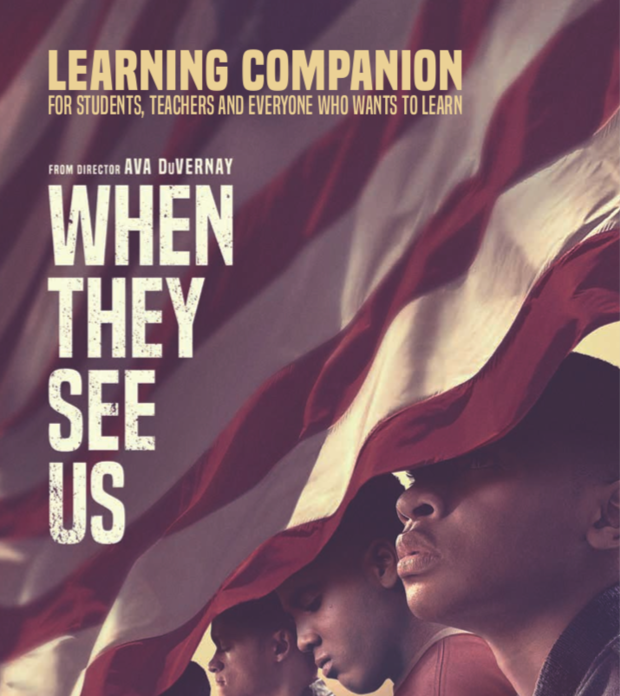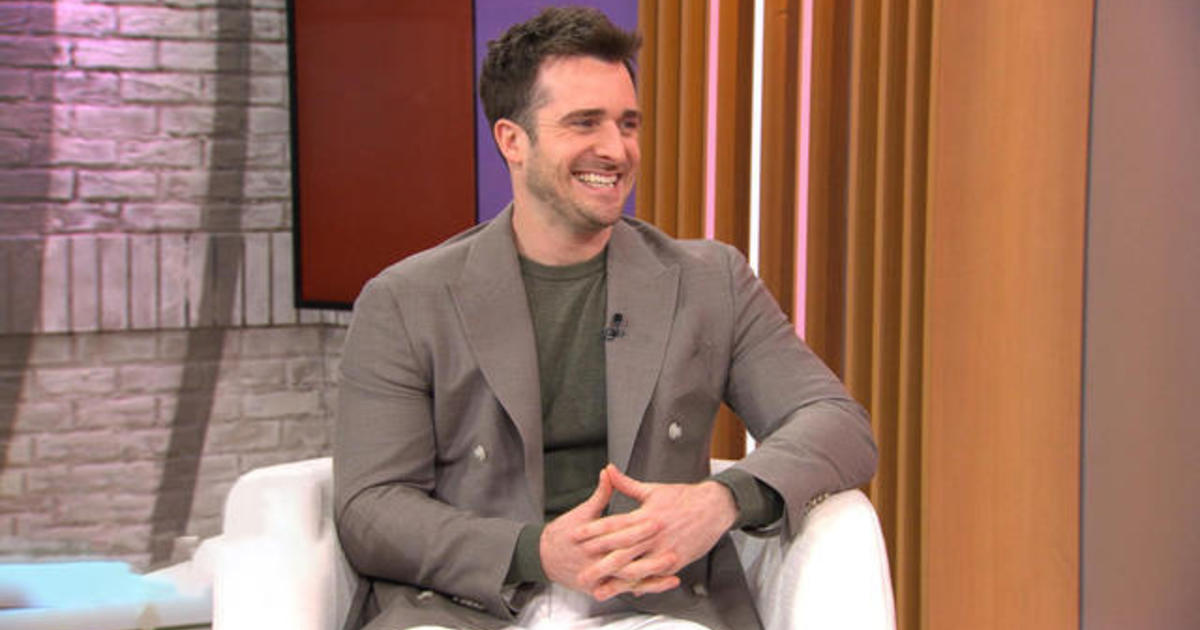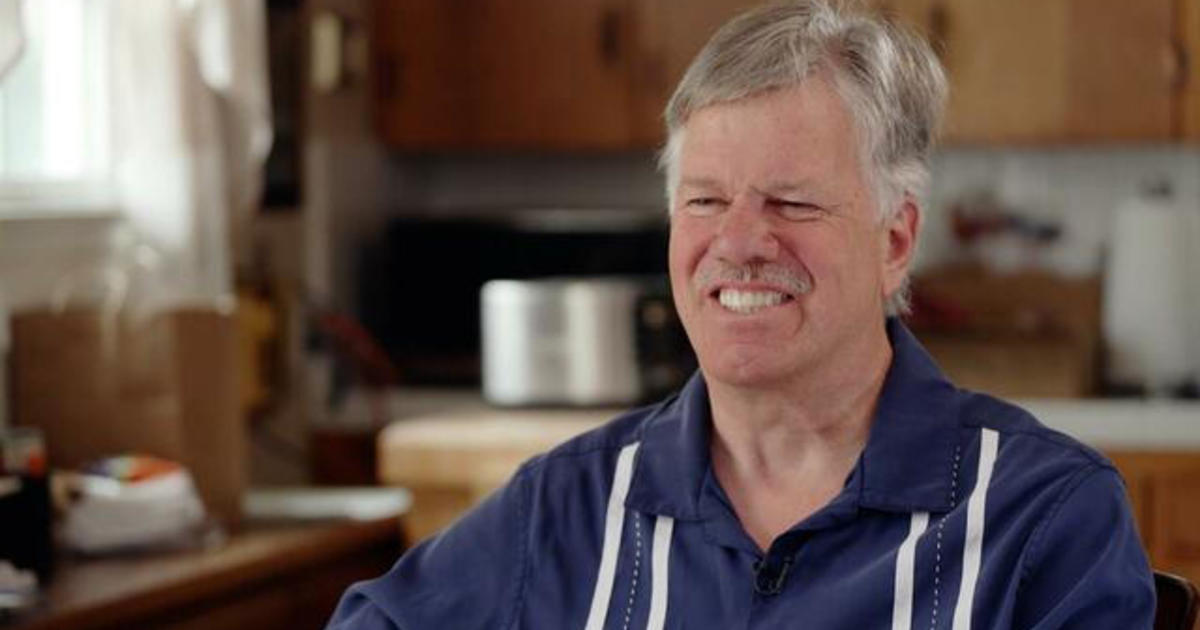Ava DuVernay: "Not our job to explain to white folk" how to combat racism
Award-winning director Ava DuVernay is turning her powerful productions into a resource for classrooms and independent study. On Thursday, she is launching a new initiative called ARRAY 101.
It will offer free learning guides for students to accompany TV and film productions. The first one is for her mini-series, "When They See Us," a four-part drama about the five black boys wrongfully convicted of a Central Park rape in 1989.
She said the emotional response to the series led her team to develop ARRAY 101.
"So many people came up to me and said, 'I cried. I couldn't finish it.' You know, they felt very deeply about it. But I think what I failed to do and what many of us in Hollywood failed to do is connect the dots between the thing you make and the people who are watching, particularly young people," DuVernay told "CBS This Morning" co-host Gayle King.
To bridge that intersection between film and social justice, DuVernay's production company, ARRAY, partnered with Participant Media to create what she calls a "learning companion" for "When They See Us."
DuVernay told King she hopes the resources will empower youth and inspire action.
Read more of their conversation below.
DuVernay: What I found is to have people sign a petition, or everyone go to this protest, everyone may not be interested in taking action in that way. There's a whole array, no pun intended, of options that we, you know, suggest, and really invite people to go further.
King: And now, Ava, we have another story from Central Park where a white woman is falsely accusing a black man. Where do we begin to process, Ava, when calls for help — and I'm using help in finger quotes — in this particular case are really being used as weapons against people of color?
DuVernay: We have to look to history. We're not the first to be in this situation. ... And I think the idea that we are helpless is just an idea that I don't accept. I think we can continue to be learning how to combat these things. … In this social media age, we react to it. We're upset about it for a day. We tweet. We post. And then we kind of move on. And that organizing principle, that deeply ingrained mission to change, is what I hope we can get to.
The viral video in question shows a white woman in a racially charged confrontation with a black man in Central Park. He was birdwatching at the time, when she called police and made a false accusation against him, specifically mentioning his race.
DuVernay: The minute I saw it I knew what was going to happen before it even happened.
King: What do you mean?
DuVernay: Well, she says, "I'm going to say an African American man is doing this." You, as a student of history, have context for exactly what's going to happen next. ... You know when the police come, they will historically, and there's, you know, overwhelming precedent that they will believe her on sight, and not him, … his background will be interrogated and investigated. … This case, he was a Harvard graduate who's president of the bird watching club, you know what I mean, and a prominent figure. But he shouldn't have had to be that for him to have the benefit of the doubt.
King: So what action can white people who see themselves as allies, what can they do?
DuVernay: You know, I really feel strongly that that's not a question that people who are not white should answer. You know, we take on the emotional labor of racism. And it is not our job to explain to white folk how to fix their broken selves in this context, right? Because there's a brokenness there that says that I am better, that I can — I will be believed. Right? That's what this woman grew up with, the privilege of being believed, the privilege of the presumption of innocence. ... There are many educated Caucasian folk who are talking to each other about it. They need to continue to do that, so that we can save our energy for survival and thriving.
King: I did have a conversation with [my son] Will, who had on this black mask. You know, we're all supposed to wear a mask. I said, "Will, you shouldn't walk around with a black mask. Where is your orange bandana?" … And he goes, "Why should it matter the color of the bandana that I'm wearing?" ... I think it does matter.
DuVernay: I saw my brother Nicholas the other day. … He was jogging — going to be jogging in this neighborhood. He had a black mask and a black hoodie. And I'm, like, "What are you doing? … You know where we live. You know what that means."
King: You know, the New York Times had a very powerful front page the other day, where they listed 1,000 names. … What is the impact that coronavirus has had on the film industry? And maybe even on you personally?
DuVernay: Yes. Well, you know, I've lost a crew member on the project that I was just working on, … no one was there when he passed away. And so, the grappling with the not being there, I think, is the toughest part with the folks that I have lost. Because so many of us are such a be there kind of person. You know?
King: But you are one of those be there kind of people.
DuVernay: Yeah. So to not be able to do that. ... You feel so unmoored, so unanchored, that your grief just sits right on top and there's nowhere for it to go.
King: What's your game plan moving forward for your business, Ava?
DuVernay: Yeah. You know, it's a black woman-owned business. I say it's not a mom and pop. It's just a mom. And —
King: Hello mom.
DuVernay: Yup. That's me. … We're working hard programming virtually, learning new ways to program.
King: I know we're all trying to figure out ways to adapt. … You're doing something different for "When They See Us" coming up.
DuVernay: Yes. … We're going to go ahead and watch the first episode of "When They See Us" together on the one year anniversary, which is this Sunday, May 31.
King: I can't think of a better way to watch it than with you.




